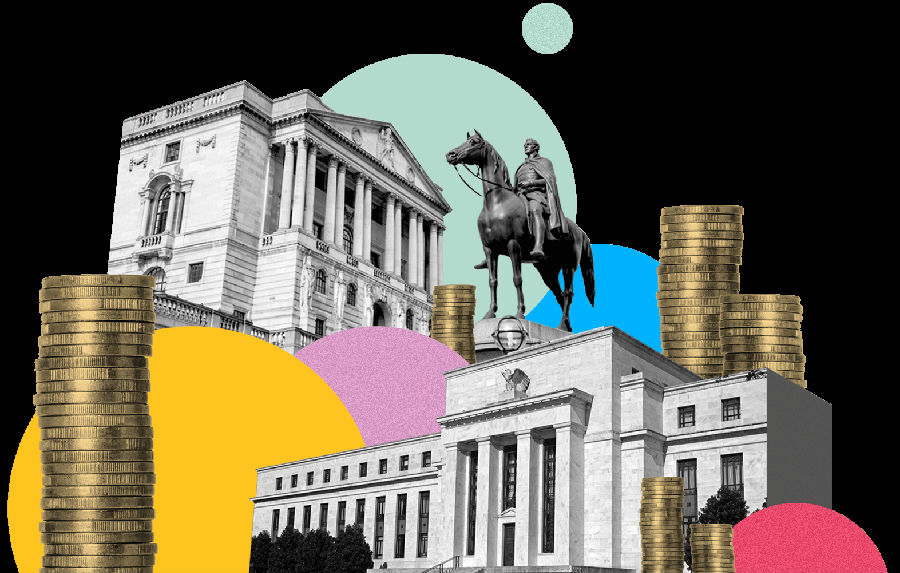Brazil's constitutional limits on the central bank, for example, reflect its history of hyperinflation,
例如,巴西对央行的宪法限制反映了其恶性通货膨胀的历史,
when governments resorted to the printing press to finance their populism.
当时,政府求助于印钞机来资助他们的民粹主义。
And although inflation is now firmly under control in most big emerging markets (exceptions include Argentina, Nigeria and Turkey),
尽管在大多数大型新兴市场(阿根廷、尼日利亚和土耳其除外),通货膨胀已被牢牢控制,
many of these countries still worry that monetary indiscipline can lead to destabilising runs on their currency.
但其中很多国家仍担心无纪律的货币政策会导致对本国货币的不稳定挤兑。
QE is also, surely, less needed in the emerging world. In Chile and Peru benchmark interest rates are already about as low as they can go.
当然,新兴市场对QE的需求也较少。在智利和秘鲁,基准利率已经低得不能再低了。
But in most of their peers, central banks still have room to ease monetary policy by conventional means.
但在大多数同类国家,央行仍有通过传统方式放松货币政策的空间。
In Indonesia and South Africa, for instance, the policy interest rate is still over 4%.
例如,在印尼和南非,政策利率仍在4%以上。
Why then are central banks pressing ahead? They believe their bond purchases serve a distinct purpose.
那么,各国央行为什么要向前推进呢?他们认为,他们购买债券是为了不同的目的。
They are neither an unconventional way to lower borrowing costs nor an illicit one to finance the government.
它们既不是降低借贷成本的非传统方式,也不是为政府融资的非法方式。

The aim instead is to stabilise financial markets.
相反,其目的是为了稳定金融市场。
In Brazil the president of the central bank says its bond purchases will resemble foreign-exchange intervention.
巴西央行行长表示,他们购买债券将类似于外汇干预。
It will not try to peg bond yields any more than it pegs the real. But it will try to smooth out jumps.
它不会像限制现实一样,限制债券市场利息率。但是它会尝试消除暴涨。
The South African Reserve Bank says that its purchases are not meant "to stimulate demand", but to ensure a "smoothly functioning market".
南非储备银行表示,其买入债券不是为了“刺激需求”,而是为了确保“市场平稳运转”。
In some quarters QE is still a tainted term, associated either with mercantilism, as a weapon in a currency war, or monetary adventurism.
在某些领域,QE仍是一个有污点的术语,要么与重商主义(作为货币战争中的武器)有联系,要么与货币冒险主义有联系。
But the stigma is fading. Indeed some central banks now say they are doing QE even when they aren't.
这种污名正在消失。一些央行现在确实表示自己正在实施量化宽松政策,尽管他们并没有这么做。
The Bank of Korea, for example, has resolved to buy unlimited amounts of bonds from financial institutions that promise to repurchase them after three months.
例如,韩国银行已经决定从金融机构购买无限量的债券,这些机构承诺在3个月后回购这些债券。
These "repo" operations amount to collateralised loans, not outright purchases. Few economists would describe them as QE.
这些“回购”操作相当于抵押贷款,而不是直接购买。很少有经济学家会将这种方式描述为QE。
But far from resisting the term, the Bank of Korea has embraced it ("It wouldn't be wrong to say we began quantitative easing," noted one official).
但韩国银行并没有抵制这一术语,反而欣然接受了它(一名官员指出,“我们开始进行量化宽松,这么说也没错。”)。
Never in the field of central banking have so many worried so little about buying so much.
在中央银行领域,从来没有这么多人对购买这么多债券如此不担心。
译文由可可原创,仅供学习交流使用,未经许可请勿转载。



